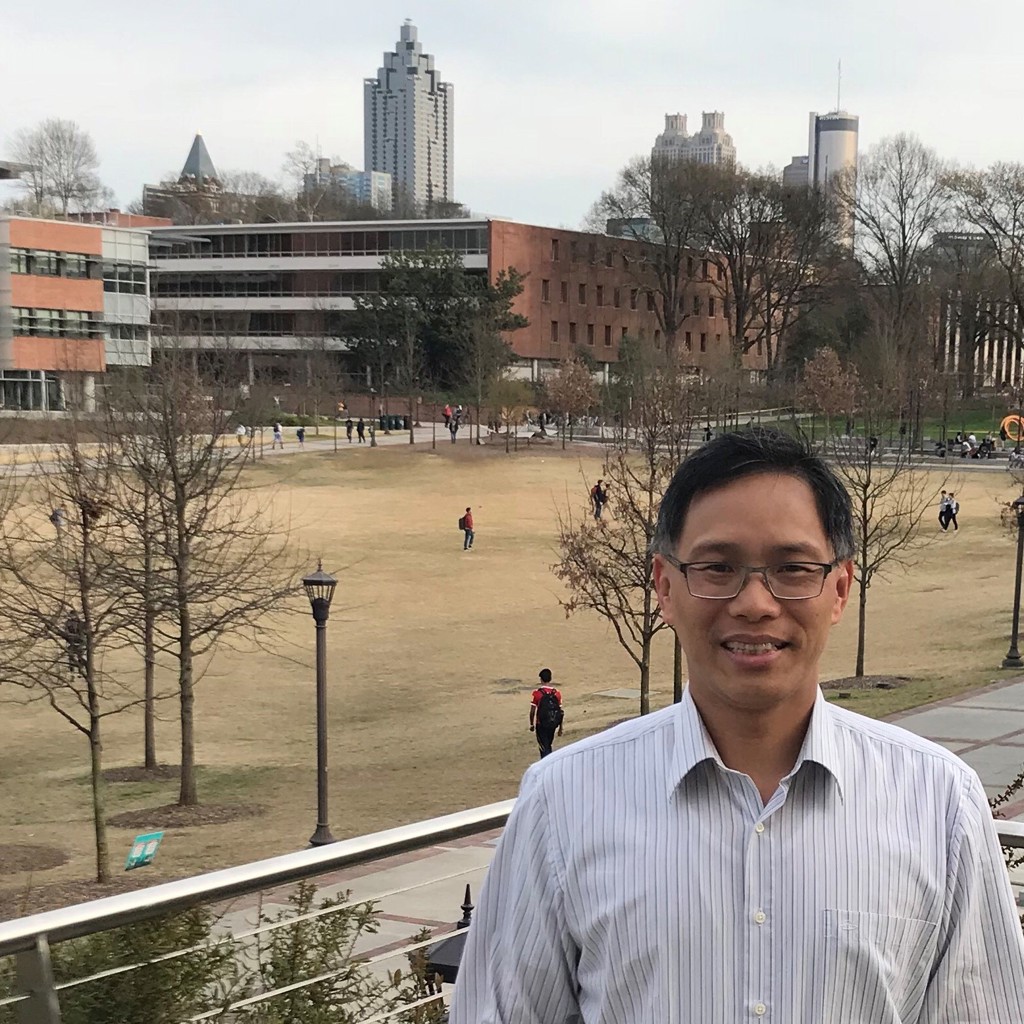Shyh-Chiang Shen
Georgia Institute of Technology, United StatesFor the development and advancement of compound semiconductor opto-electronic devices and integrated circuits.

Shyh-Chiang Shen says “photonics and electronics have crossed paths with each other” and notes it is “expected that researchers in photonics will contribute significantly in next-generation electronic systems.” This is good news for Shyh-Chiang as optoelectronic devices are a major part of his research.
He credits an assigned research project on the development of near infrared electro-absorption (EA) modulators using InP/InGaAs heterojunctions, during his Master’s degree at National Taiwan University, as what led him to continue his studies in the United States. The research allowed him to “appreciate the immense opportunities of utilizing compound semiconductors to enable optoelectronic devices.”
As Professor in the School of Electrical and Computer Engineering at Georgia Tech, his current research is “focused on optoelectronic device development using nitride semiconductor materials in ultra-violet wavelengths.” He says the biggest challenges in the development of nitride-semiconductor-based devices are to understand the interplay of the material engineering, device designs, and physical device implementation issues and to exploit the ultimate performance for specific applications. When asked about the coolest discovery he has ever made, he says that he is “still working hard to make the coolest semiconductor devices” and hopes to share some trailblazing discoveries in the future.
Shyh-Chiang is familiar with obstacles, most notably he was challenged during his PhD studies at the University of Illinois- Urbana-Champaign. He was assigned to a MEMS project, where he focused on creating robust low-voltage RF MEMS switches. After nearly two years of failure an inability to create a functional device, he eventually created a prototype demonstration which later led to a “highly robust RFMEMS switch technology” that was based on his original ideas. During this process, Shyh-Chiang carefully documented all of the observations which later helped him to resolve the critical issues. This experience taught him a valuable lesson: “any new concepts with fundamentally sound physics are worth a researcher’s time to endeavor with patience, effective time management, and systematic methodology for problem solving.”
He adds that his research advisors in his graduate studies have been role models for him, encouraged him to pursue an academic career, and helped him to tackle seemingly impossible research problems. “A true mentor,” says Shyh-Chiang, “is the one whose relationship can grow from professional advisor to lifelong friend.” He says he has been very fortunate to experience this.
In addition to mentors, Shyh-Chiang says OSA has been a great source of knowledge and a way for him to be able to keep track of the latest technological developments through OSA Publishing and technical conferences.
“If you follow your heart, engage in active reading, and take parts of the activities in professional societies, you will find your passions and career path.”
Profile Written by Jeanette Gass
